
In this issue of Clif’s Notes, I provide information about free wireless on campus and review the June Board of Governors meeting, which includes the approval of the operating budget for fiscal year 2015 and outlines how we will handle the governor’s withholding.
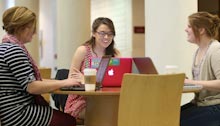 Free wireless on campus
Free wireless on campus
I wanted to make sure you know that the open-access wireless service for all areas within both the Plaster Student Union and Meyer Library was brought online May 24. Here is the information you will need to access this service:
- Wireless network name: MSU Open (This name will appear when you search for available networks with your device.)
- Password: Welcome2MSU (This password should not change but possibly once a year.)
The open-access wireless provides full access to the Internet but limited access to Missouri State resources since we want to encourage students, faculty and staff to use their BearPass Logins to access their sensitive information.
There are currently no bandwidth limits on this network. Computer services will re-evaluate as the summer semester continues to see if limits are necessary prior to the fall semester. In the meantime, please let computer services know if you have questions.
We are pleased to offer this service, and I want to thank Jeff Morrissey and the computer services staff for making this a reality.
Board of Governors meeting
Again this year, the Board of Governors had its June meeting Friday in Kansas City. We combined that meeting with a donor event Thursday night and the Missouri State Night at Kauffman Stadium Friday night for alumni and friends. We appreciate Governor Steve Bough assisting with the arrangements in Kansas City.
The Board took several actions at the meeting that I want to summarize for you.
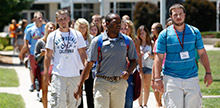 Operating budget for fiscal year 2015
Operating budget for fiscal year 2015
The Board approved the operating budget for fiscal year 2015 which totals about $263 million, up approximately $10 million from the current year. The budget increase will be funded in part by three items:
- A 5.2 percent increase in state appropriations based on Missouri State meeting all five of its performance measures
- Continued enrollment growth, which continues to be a vital part of increasing revenue
- Modest increases in non-resident and graduate tuition and fees
Undergraduate tuition remains steady
Tuition for Missouri undergraduate students will remain at the 2013-14 rate of $204 per credit hour. The University’s commitment to hold Missouri undergraduate tuition the same from 2013-14 to 2014-15 is based upon the governor’s recommended budget and the approved General Assembly’s budget.
Investing in the compensation package
As I have outlined in previous issues, the majority of the increase in the budget will be dedicated to significant investment in the compensation package to faculty and staff for fiscal year 2015. The Board also approved a 1.5 percent pay increase for full time faculty and staff and various compensation initiatives. This continues the Board’s commitment to improve compensation for faculty and staff.
You can read more about the budget in this news release and see the complete budget online.
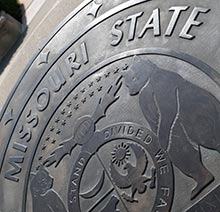 Plan to deal with withholdings
Plan to deal with withholdings
On Tuesday, Governor Jay Nixon announced that he would sign the operating budget bill but withhold the entire 5 percent increase for higher education. For Missouri State, that means the 5.2 percent, which amounts to about $4 million.
We are very disappointed about the withholdings — especially the extent of the withholdings and the timing on the eve of the new fiscal year. We prepared the fiscal year 2015 operating budget in good faith based on the increase which was recommended by the governor and approved by the Missouri General Assembly. We must now potentially find ways to reduce the budget and options available to us are neither good nor easy.
We expect to know more about the fiscal year 2015 budget following the veto session in mid-September. In the meantime, we will continue to talk with our elected officials about the tax cut bills and the timing of their implementation given the fact that state revenues are at least flat, if not declining.
Initial decisions
I wanted you to know that we have made these initial decisions:
- We will proceed as planned with all compensation increases (1.5 percent across-the-board increase, Full Professor Incentive, staff salary initiative, 1.5 percent increase for graduate assistants, etc.) — this is appropriate given that improving compensation for faculty and staff continues to be the No. 1 priority for the Board of Governors and this administration.
- Maintaining the compensation means we may have to accept other difficult decisions to balance the budget — for example, we will delay the 1.5% restoration of operating budgets for cost centers and evaluate its viability after the veto session.
We will continue to review and consider options for reducing the budget deficit as we wait for the results from the veto session and fall enrollment numbers. This action again highlights the importance of enrollment growth.
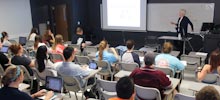 Faculty Handbook revisions
Faculty Handbook revisions
The Board approved the revisions recommended by the Faculty Handbook Committee. You may review those revisions.
I want to thank and congratulate the Faculty Handbook Revision Committee, chaired by Dr. Rich Biagioni, for its good work on this initiative.
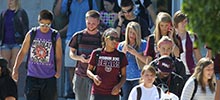 Discussion updates
Discussion updates
For this month’s Board discussion, we provided updates on the three discussion topics for 2013-14:
- Diversity
- First generation students, as well as transfer students
- Higher Learning Commission and other accreditations
The Board was pleased with the progress we are making in each of these areas.
 New student Board member
New student Board member
At the Kansas City meeting, we welcomed our new student Board member, Caleb Doyle. Caleb is a junior from Barnhart, Missouri, majoring in secondary education. He replaces Paige Jenkins who represented the students well during her time on the Board.
The next time the Board meets it will be July 31 for the annual summer retreat. The emphasis of the retreat is to discuss and finalize the goals for 2014-15.
Conclusion
With classes, various academies and camps, along with the construction, the campus is buzzing this summer. I trust that you will not only be productive in your various activities but also take some time to refresh and rejuvenate. It won’t be long before we are preparing to welcome students back for the fall semester.
Thanks for all you do for Missouri State University.
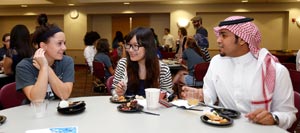 This summer you won’t have to travel far to meet someone from Japan, Mali, Ecuador or Saudi Arabia — just downtown to the Jim D. Morris Center. More than 450 students representing 24 countries will take part in programs offered by the English Language Institute (ELI) this summer alone.
This summer you won’t have to travel far to meet someone from Japan, Mali, Ecuador or Saudi Arabia — just downtown to the Jim D. Morris Center. More than 450 students representing 24 countries will take part in programs offered by the English Language Institute (ELI) this summer alone.
“One of our students described the ELI as a mini-United Nations where students from different countries bring their diverse political, religious and cultural views to share with one another in a non-threatening environment. We all learn from each other — and in so doing, we discover what we have in common is far greater than our differences,” said Dr. Jane Robison, executive director of the ELI.
Intensive English program
ELI began in 1996 as an intensive English program for international students planning to study abroad in the United States. According to Robison, ELI enrollment has grown from five students to more than 200 each session, with program participants now including international professors seeking professional development opportunities.
Short-term programs
In addition to its intensive English program, ELI offers a number of short-term programs during the summer:
- Isesaki Global Leadership Academy: a 10-day program for 120 high school juniors from Yotsuba school in Isesaki, Japan, Springfield’s Sister City
- Language and Culture Program 8: an eight-week English training program for professors and students from Colombia and other countries
- Language and Culture Program 4: a four-week English training program for participants from Korea, Global UGRADs, Brazil and Colombia
- Global Leadership Academy, a three-week program for international and domestic high school students
- Children’s English Program, a two-week on-campus program for five young Chinese children accompanied by six parents
- Isesaki Youth Program
“All of these programs are a great opportunity to introduce potential students to our campus, to expose them to the public affairs mission through the program’s objectives and to bring an awareness of the value of having international guests of all ages on our campus and in our community,” said Robison.

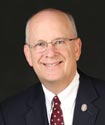
 Send comments
Send comments Follow Clif Smart on Twitter
Follow Clif Smart on Twitter


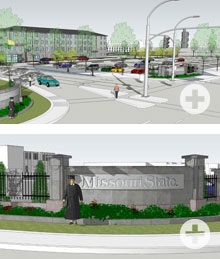
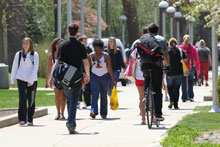 Marketing research
Marketing research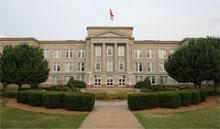 Scholarship revisions for fall 2013
Scholarship revisions for fall 2013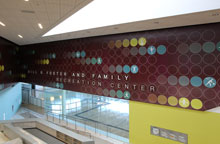 Other notes
Other notes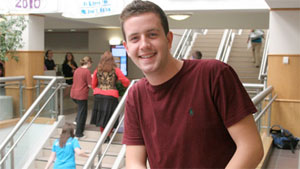 Former Student Body President Scott Turk recently received a significant national honor. He was named the 2011-12 recipient of Theta Chi Fraternity’s Reginald E.F. Colley Memorial Trophy, Theta Chi’s most prestigious undergraduate honor. The socio-political communication major was selected for this award based on his leadership on campus, in Theta Chi and in the community.
Former Student Body President Scott Turk recently received a significant national honor. He was named the 2011-12 recipient of Theta Chi Fraternity’s Reginald E.F. Colley Memorial Trophy, Theta Chi’s most prestigious undergraduate honor. The socio-political communication major was selected for this award based on his leadership on campus, in Theta Chi and in the community.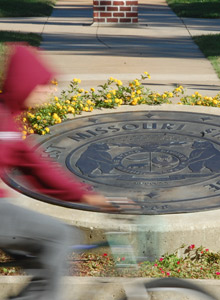
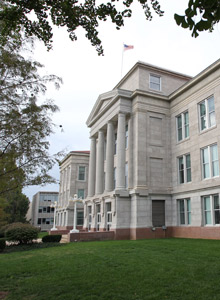 Fiscal year 2013 budget
Fiscal year 2013 budget